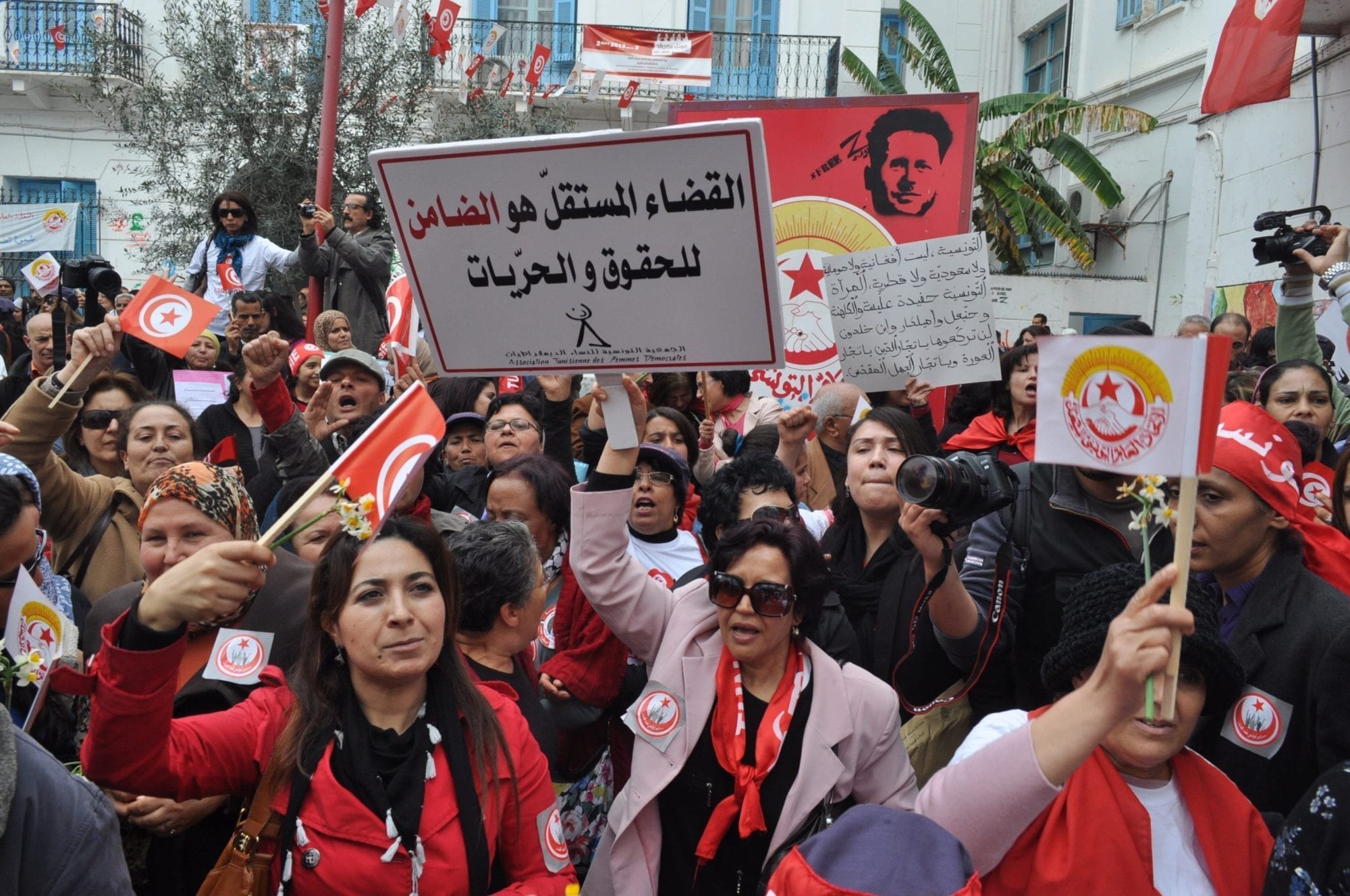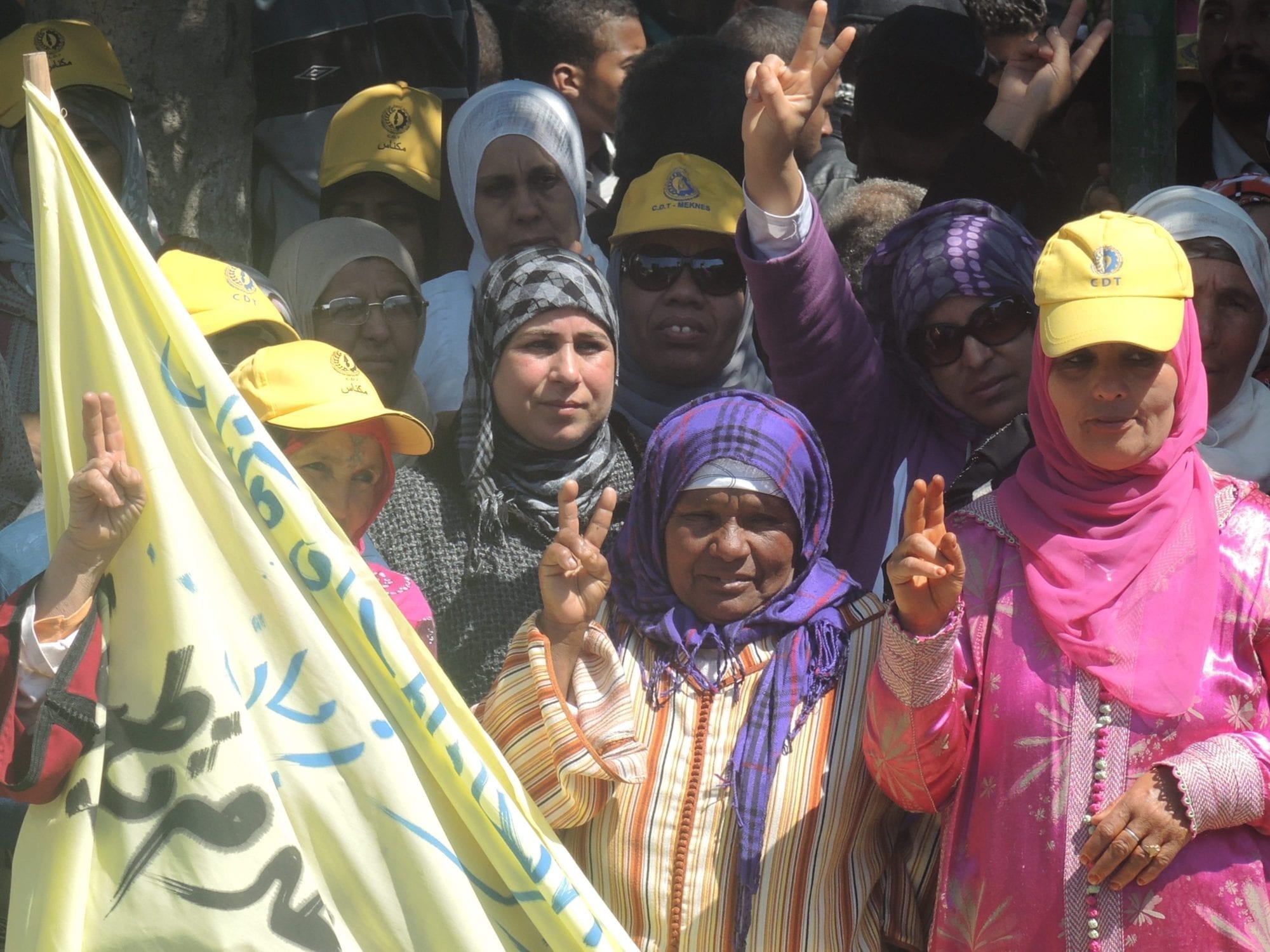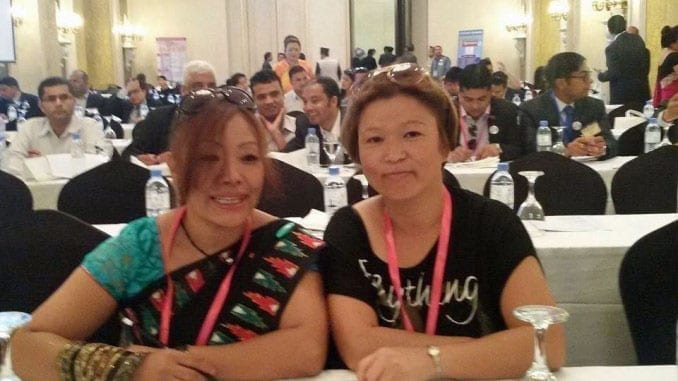Workers who migrate to other countries for jobs often do not know their rights when they arrive, and many, like domestic workers, toil in isolation, where they are easily exploited by employers. Rosalie Ewengue, a domestic worker in Morocco from the Democratic...
Middle East & North Africa
 In the Middle East and North Africa (MENA), the Solidarity Center supports democratic unions and civil society organizations as they defend the human right to freedom of association, promote worker equality and raise awareness of the global economic context in which they labor.
The rich history of union activism in much of the MENA region goes back to the 1920s, when labor movements formed the working-class base of the struggle against colonial authorities. Today, global economic and political dynamics are eroding the universal human rights that democratic trade unions defend. Government efforts to liberalize come at a great cost: the erosion of worker rights and economic fairness.
While in some MENA countries, cumbersome laws facilitate government intervention in trade union operations, generally excluding or discriminating against certain workers based upon political ideology, gender, national status or job class. The Solidarity Center partners with many regional trade unions and nongovernmental organizations (NGOs) to improve domestic labor law and its implementation, and to give workers a voice in shaping the economic and political development of their countries.
Regionwide programs strengthen workers’ political and economic rights by promoting rule of law, defending freedom of association, building capacity and internal union democracy, and encouraging trade union organizing. Dedicated to advancing workers’ human rights, each trade union and civil society organization in the MENA region grows stronger through alliances with one other and within the global labor movement. This strategic approach is central to the Solidarity Center’s work in MENA.
In the Middle East and North Africa (MENA), the Solidarity Center supports democratic unions and civil society organizations as they defend the human right to freedom of association, promote worker equality and raise awareness of the global economic context in which they labor.
The rich history of union activism in much of the MENA region goes back to the 1920s, when labor movements formed the working-class base of the struggle against colonial authorities. Today, global economic and political dynamics are eroding the universal human rights that democratic trade unions defend. Government efforts to liberalize come at a great cost: the erosion of worker rights and economic fairness.
While in some MENA countries, cumbersome laws facilitate government intervention in trade union operations, generally excluding or discriminating against certain workers based upon political ideology, gender, national status or job class. The Solidarity Center partners with many regional trade unions and nongovernmental organizations (NGOs) to improve domestic labor law and its implementation, and to give workers a voice in shaping the economic and political development of their countries.
Regionwide programs strengthen workers’ political and economic rights by promoting rule of law, defending freedom of association, building capacity and internal union democracy, and encouraging trade union organizing. Dedicated to advancing workers’ human rights, each trade union and civil society organization in the MENA region grows stronger through alliances with one other and within the global labor movement. This strategic approach is central to the Solidarity Center’s work in MENA.A World in Which Workers Have Decent Jobs, Fair Wages
Decent work, living wages, safe workplaces--these are some of the goals the Solidarity Center envisions for all workers around the world and for which it strives as the largest U.S.-based international worker rights organization, says Solidarity Center Executive...
Rights Groups Decry Detention of Nepali Domestic Workers
Some two dozen human rights organizations are condemning the detention of two Nepali domestic workers in Lebanon, one of whom was deported. Sushila Rana and Roja Maya Limbu were detained “without formal and clear explanation of the charges levelled against them,”...



